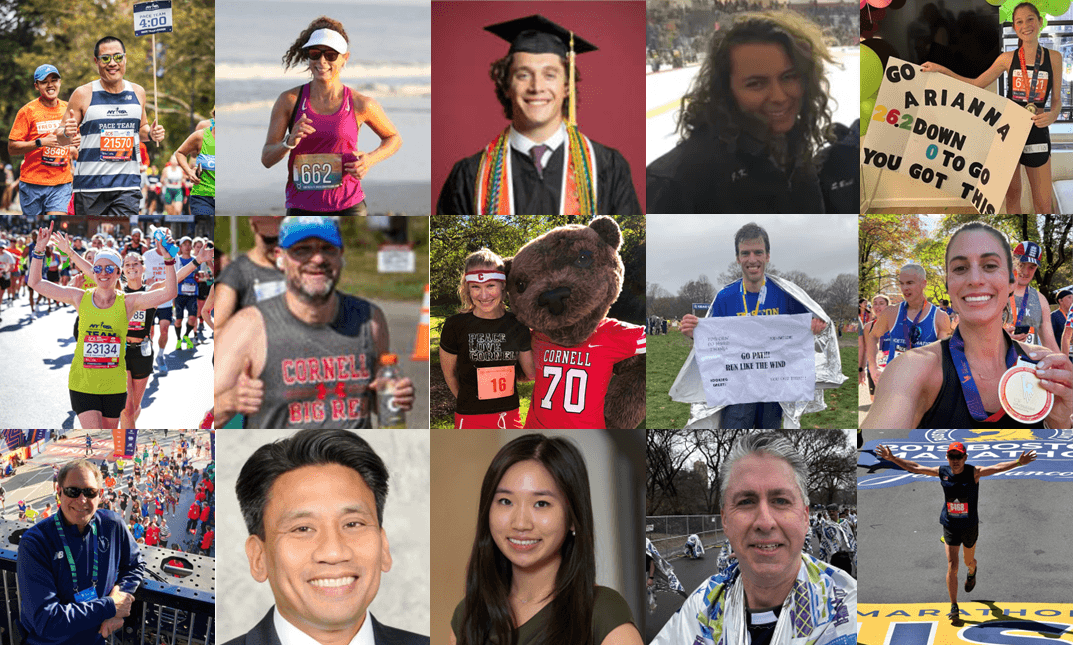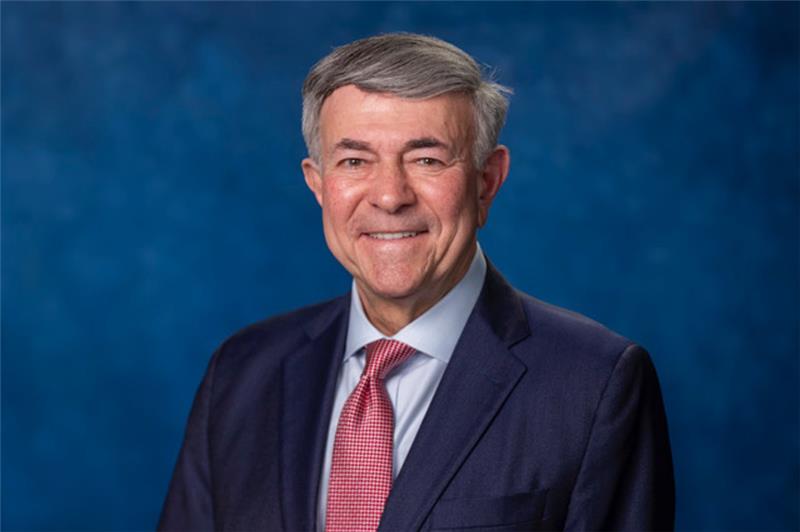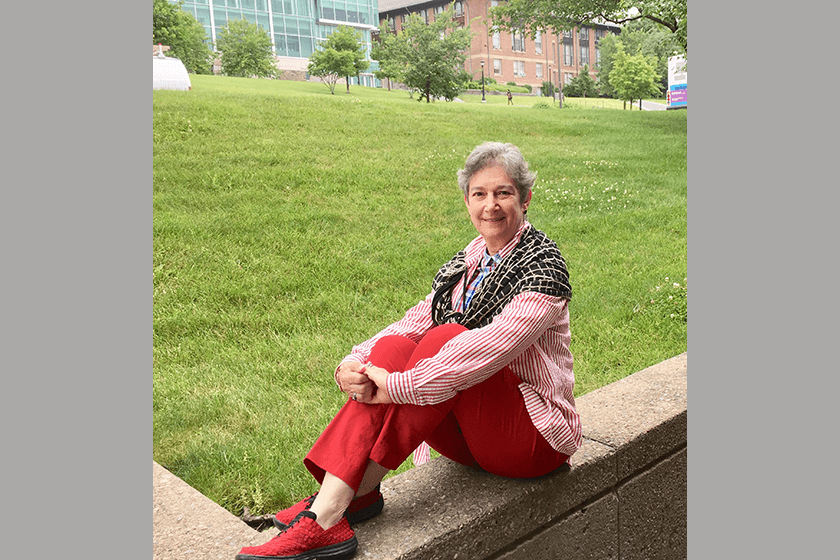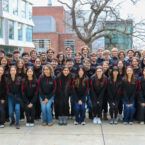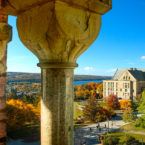Carlton Griffin ’96 sat down with fellow volunteer Patty Grant ’95 to discuss his Cornell journey and how the university shaped his life.
Carlton’s alumni activities and positions:
Ongoing:
- Class of 1996 Vice President, Affinity
- Class of 1996 Reunion Chair
- Class of 1996 Class Council
Past:
- Cornell Association of Class Officers (CACO)
- Cornell Black Alumni Association (CBAA) Vice President
- Class of 1996 Vice President, Fundraising
- Cornell Ambassador
Patty Grant ’95: Cornell’s a huge place. What communities did you find? And what was your corner of the university that brought the university alive?
Carlton Griffin ’96: For me particularly, it was interesting. My source of strength was the Office of Minority Affairs, the actual office, that administration, that staff. I still stay in touch with many of the people there, this day, 30 years later. It was a home away from home. You’ve got me, 17 years old, thinking you know everything, but never been out of the Bronx, come to this place, where everybody is just as smart as you are. Trying to make a way in a place that’s totally overwhelming. The resources they put together were great and they helped, but in particular, the actual staff was great, and that was the resource in my corner. With them in my corner, I could do anything.
When you think about all of that, what’s the tie that binds you to the university today?
My tie to the university is my experience, my experience through the Office of Minority Affairs. When I look back at my time, I loved my time. That encourages me to help; I want to help the next 16-year-old Carlton. (I went to summer college at 16, and that’s where I got introduced [to Cornell].) How does he get there, to Cornell? What does he get out of that experience? I can tie the great things in my life to that experience, to that education. How do I help the next generation do just that? And that’s what ties me back to the university.
What was it like to be Carlton at 17 in the community that you found to be your home at Cornell, as a member of the Class of 1996?
It was exciting, it was different. It was also a little scary, right? I think that ties back to the first question because, in all the bravado and the great things—and now I’m a parent—I can see and remember back, and it was a little insecure. It was like, I don’t know how I’m going to do this. I remember literally stepping off the bus in Ithaca and having to figure out how to get from the bus station to the campus and pulling my new suitcase. This is my new life! It’s all new. And I’ll share an anecdote: I remember my first roommate. I had a little refrigerator and I had cereal, I used to put the cereal in the refrigerator. My roommate asked, “Why would you put cereal in the refrigerator? I don’t understand it.” I was like, “Well, you gotta keep the roaches out.” He was like, there are no roaches here. Like, what do you mean? You’re pulling my leg! I love that anecdote because it shows a different mindset. That was my reality, you gotta put the cereal here! It was jarring, and to go through and just make your way in the world.
What was it like to make the transition from being a student to being an alumnus? How did you decide to move from being an active student in leadership roles on campus to becoming an alumni volunteer where, once again, you’re trying to figure out how you fit in?
As our time winds down, and we transition to the “world,” one of the things that came clear to me, and particularly in my chosen profession, was that a lot of the skills I developed were things I learned outside the classroom. You know, managing a budget. Like I’m 20 years old, I’ve got a budget of $3M for the Alpha [Phi Alpha] House. I’ve got to manage the budget, can’t go in the black because Cornell owns it, but at the same time, you’ve got to set the [rent] rates for brothers who I know struggle, right? You don’t want the rate too high, so you’ve got to keep expenses down—“hey, turn off the water!” But actually having the ability to manage that at 20 years old, those are skills that I took from that and parlayed into my current career in consumer product sales. It’s all about budgets and trends and numbers and all that stuff, but also managing people. How to get people to do the things they needed to do and what motivates people? Different organizations, working with PanHel and the Minority Finance Commission, and all those different factions: how do we work together to get to a common goal? Everybody has a different faction; and that’s, again, that’s my job! So that being said, one of the things that became really apparent to me was that a lot of it came back to my experience at Cornell, so I wanted to stay close and, again, provide those opportunities. I don’t even know if it was a conscious thought for the next generation. But that was the platform that CBAA provided, that the class council provided, all those different programs that allow alumni to interact with the university and current students and past students. So we’re here!
What’s your favorite memory? Or what do you think you’ve gained the most from being a class officer?
From being a class officer, one of the things I gained the most from was just watching the university as it transitioned through the years. At the last Reunion, a bunch of people came back and it’s like “I haven’t seen this in forever, and it’s totally different! Totally different.” To watch the university go through its metamorphosis—because it’s always changing, always evolving. Being close to it, it still remains a home away from home. That was helpful for me.
You’ve also joined the board of CACO, right? How has that role been different from the role of class president?
From an overarching standpoint, CACO is a little bit different. As a class officer, you’re concerned about your class activities, As CACO, you’re concerned about all alumni and alumni experiences. So it’s a little bit different tying all things together. That’s what I see as the main difference.
And how are they similar?
They’re similar in that, at the end, it’s all about connecting people, connecting alumni with Cornell. That’s the end result, the purpose, to get alumni engaged with Cornell, and for whatever reason; it could be nostalgia, to connect with old friends, or networking purposes! All of that is fair game, and all of that is the goal.
If someone’s on the fence, what would you advise them to do if they’re thinking about becoming more engaged?
I would advise them to absolutely get involved. The great thing is, there’re different ways to get involved, there’re different time commitments. If you can only spend a little bit of time, there’s a number of different roles that you can serve in to do that. One of the other things that was really great, and kind of dovetailed back into my learning stuff outside the classroom, was the alumni organizations also give you the opportunity to do things outside of your field, your field of study or your occupation. You know, you can help with the class website—I’m not a website designer! But now I want to see what these kids got going on on TikTok! You get to work with that, and the university does an excellent job of providing the framework and the resources for the alumni organizations. They do a phenomenal job.
Do you see a through line from your undergraduate leadership activities to your alumni leadership activities?
I think so. Part of it is that, when you’re engaged, you tend to stay engaged. As an undergrad, if you’re engaged, then more than likely, you’ll be engaged as an alum. It doesn’t necessarily have to be linear, like “if you did this thing, you’re going to do this.” But it’s just the whole point of engaging.
You spoke about 16-year-old Carlton, about 17-year-old Carlton. How did you come to be XX-year-old Carlton? Who were your mentors, who did you look up to?
That’s interesting! A couple of people: Ray Dalton was instrumental in helping me navigate from 16, 17-year-old Carlton to young adult. My frat brothers did a lot in terms of having gone before and saying, you’re doing this, this is great, you can do this. I can see that progression. And then what my wife will tell you is that she is the answer to everything, so everything was her!
Any final words or thoughts about your time at Cornell? Or advice for new grad.
I don’t want to be myopic, like everything was great. Cornell was hard, it was tough. But it was tough in the way that a boot camp is tough. It’s hard, but you come out better and stronger. So I don’t want make any misrepresentations. It was hard! There were some things that weren’t fair. But what I loved about it was there were people there as support systems. We had the ability to try to address those things. That was a key thing for me, just in life.
When I look at now, as 47-year-old Carlton, looking at these kids, I see the product that Cornell has put forth, there’s a toughness. I’m trying to find a better word than that. But Cornell is kind of like a crucible of fire. You can tell someone that’s come out of it. You’re tempered. You’re ready for anything. And I think that’s one of the things that’s a gift and a curse! Not everybody can do that. But those that can, really benefit from it. I say all that to say that coming back, a lot of times when people go through that, they look back at it less nostalgically than I did. But as you get further from it, you see the benefits of it. I would say not to let that [challenge] dissuade someone. I look at it a lot as how, as a Black man, I look at America. I love America, right? But it doesn’t necessarily always love me. It doesn’t mean I haven’t had opportunities. But at the same time, there’s been some things! I might be getting too deep, but I think that has been always my thing.
Last thing, take full advantage of all the opportunities that the university has, particularly because college life is very short. It’s a short timeframe, the university has a ton of resources, and take advantage of all the things you can, all the things you want to. The only reservations I’ve had about my time is that I didn’t do the semester abroad, or that kind of thing. When I look back and say, “I could have gone to the planetarium more”—so that’s what I’ll say!

